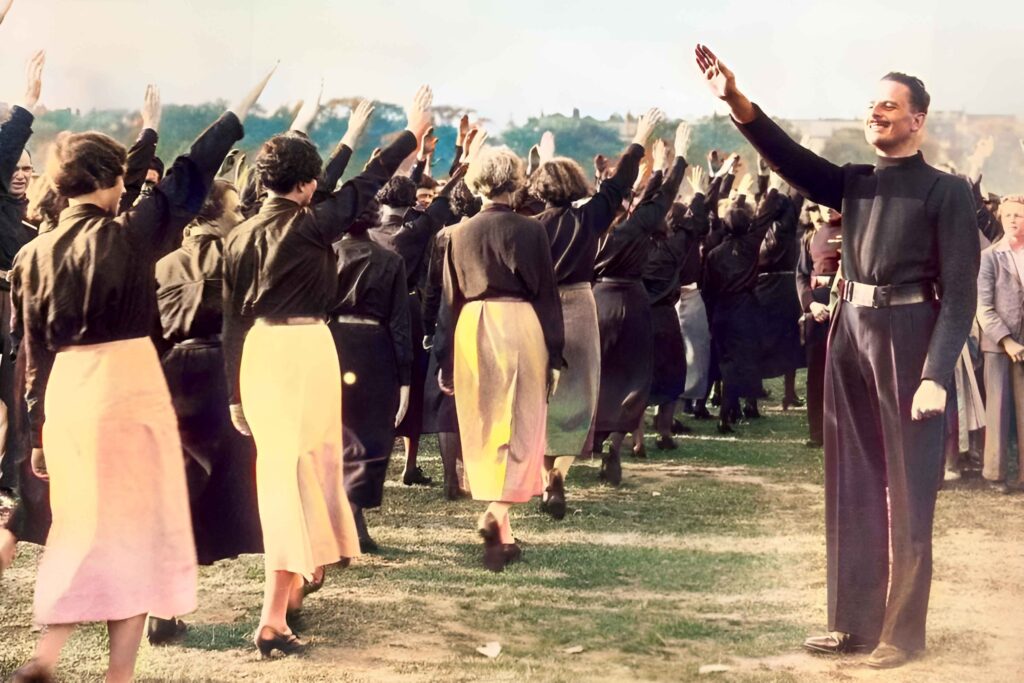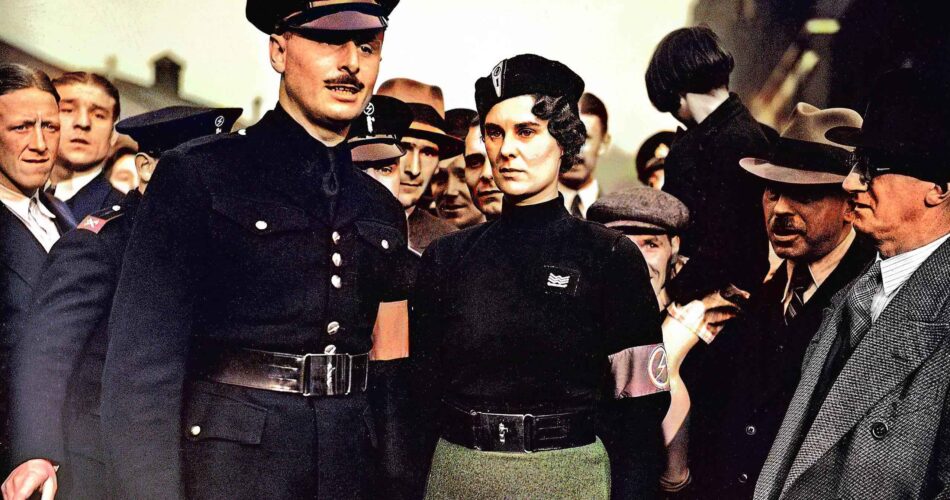The rise of Oswald Mosley and the British Union of Fascists (BUF) during the early 1930s represents a critical chapter in British political history, reflecting the broader European fascination with fascist ideologies following the economic turmoil of the Great Depression. Oswald Mosley, a charismatic and controversial figure, founded the BUF in 1932, aiming to address the rampant unemployment and social instability of the time with a radical new political formula.
Fast Track:
TL;DR
Political Climate and BUF’s Formation The political atmosphere in Britain during the early 1930s was ripe for radical ideologies. The Great Depression had hit the British economy hard, leading to high unemployment and social discontent. Mosley, who had previously been a member of both the Conservative and Labour parties, proposed a third way—fascism, inspired by Mussolini’s success in Italy.

Ideological Influences and Initial Appeal Mosley was influenced by the fascist regimes in Italy and Germany, adopting their authoritarian, nationalist, and corporatist ideas. His movement promised to revitalize the British economy through strong leadership and an authoritarian corporate state that would transcend traditional class divisions and party politics. The BUF’s appeal was initially broad, attracting a diverse range of supporters, from disillusioned workers and veterans to intellectuals and aristocrats.
Public Engagement and Controversy Mosley was a skilled orator and used mass rallies to gain public support. These events, however, often turned violent, with clashes between BUF supporters, communists, and anti-fascist groups. The public and media reactions to these violent encounters were mixed, with some seeing the BUF as a necessary force against communism and others viewing it as a threat to British democracy.
TL;DR
- 🗣️ Charismatic Leadership: Mosley’s charismatic appeal played a significant role in the initial rise of the BUF, drawing in supporters frustrated with traditional politics.
- 📉 Economic Desperation: The backdrop of the Great Depression provided fertile ground for radical political solutions, making BUF’s economic policies attractive to those hardest hit.
- 🤝 Ideological Promises: Mosley’s vision of a corporate state promised to unify the British society and economy, appealing to a populace weary of class strife and economic instability.
- 🔨 Violent Clashes: The frequent violence at BUF rallies and the aggressive tactics used by its members often overshadowed its political message, leading to widespread public and political backlash.
- 📚 Media Influence: The British media played a crucial role in shaping public perception of the BUF, with some outlets sympathizing with its aims, while others vehemently opposed it.
The BUF’s rise was a symptom of broader social and economic crises, and its initial popularity underscores the appeal of authoritarian solutions in times of deep societal stress. However, the inherent violence and radicalism of Mosley’s movement ultimately led to its decline, as public opinion turned against its methods and ideology, particularly after events like the Battle of Cable Street in 1936, which marked a significant turning point in public resistance to fascism in Britain.
